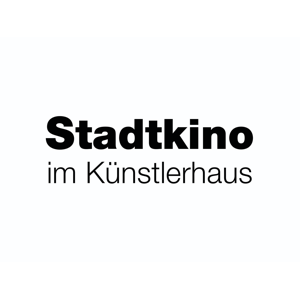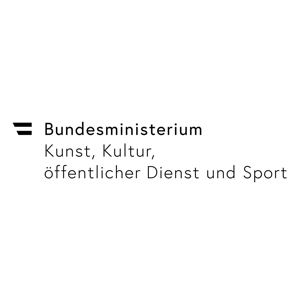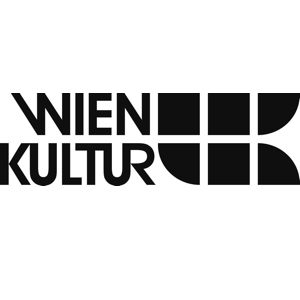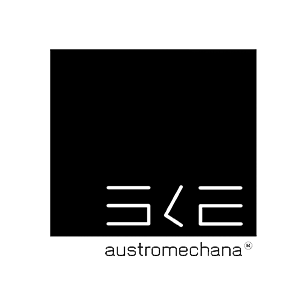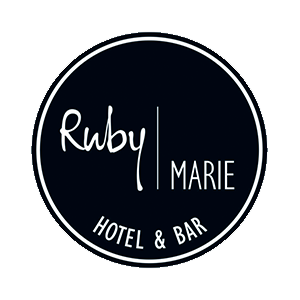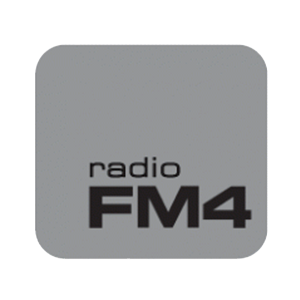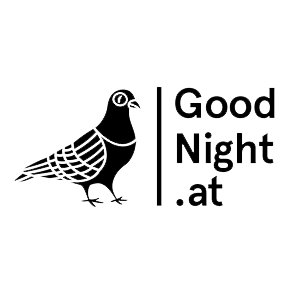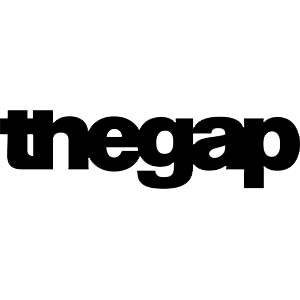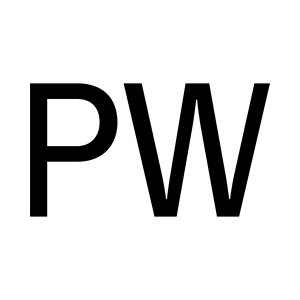
HYPERREALITY 2020/2021
The Death of Club Culture
01. + 28.-29. Juli 2021
Stadtkino, Gustav A. Kirche
English Version below
Schon lang vor dem Ausbruch von Covid-19 war der Musikmarkt kaputt. Der Grund dafür ist bekannt: Der Kauf von Musik wurde zuerst von Downloads, dann durch Streamings ersetzt. Der dort generierte Umsatz landet größtenteils bei Technologie-Unternehmen. Musiker_innen müssen seither den Löwenanteil ihres Einkommens mit Live-Auftritten verdienen. Kein Wunder also, dass die Szene in sich zusammenbricht, nachdem der Live-Musikmarkt im März 2020 durch Corona abrupt stoppte. Im elektronischen Musikbereich trifft es marginalisierte Communities, die genau diese Szene pionierten und maßgeblich prägen, besonders hart. Im Jahr von Black Lives Matter hat diese Tatsache einen bitteren Beigeschmack und spielt eine umso wichtigere Rolle bei Überlegungen dazu, wie es in – und außerhalb der Musikszene weiter gehen soll.
Der lokale Trend (in breiteren Musik-Communities aber auch der internationale common sense) scheint “back to normal”. Eine Förderung von 3 Millionen Euro soll ortsgebunden die Wiener Clubs durch die Krise bringen. Kann eine solche Förderung als Krücke für ein an sich schon kaputtes System überhaupt funktionieren? Ein vielerorts geforderter Neuanfang wird in Wien denkbar wenig diskutiert – und das, obwohl die globale Krise, die Covid-19 ausgelöst hat, die irrsinnigen und komplexen sozialen Ungleichheiten und Dynamiken wie niemals zuvor an die Oberfläche gespült hat.
Was können wir von der Krise, die Streaming am Musikmarkt ausgelöst hat, für den Live / Event Bereich lernen? Und welche Rolle spielen dabei Verteilungsfragen? Am Musikmarkt treten andererorts dezentralisierte oder langfristige Support-Konzepte wie Patreon in den Vordergrund. Bandcamp ermöglicht Musiker_innen den direkten Vertrieb ihrer Musik. Wie kann man diese Ideen auf Orte, Festivals oder Veranstaltungen umlegen? Haben wir als Betreiber_innen eines Clubs langfristig eine Chance, wenn wir diesen nicht besitzen? Wie kann ein dezentralisiert finanzierter Club aussehen? Es wird nicht reichen, staatliches Geld zur vermeintlichen Überbrückung einer Krise in ein kaputtes System zu spülen.
Hyperreality ist Teil einer international verflochtenen elektronischen und experimentellen Musikszene, deren Programm eng an Utopien geknüpft ist. Konzeptuelle Ansätze werden dabei auf alle Aspekte der künstlerischen Arbeit ausgeweitet (so waren Quoten bei Hyperreality beispielsweise nie nur im Programm wichtig). Das Musikprogramm war dazu da, auf globaler Ebene gegenwärtige Diskurse zu führen und neue, kollektive Ansätze zu erträumen. Pionier_innen dieser Szene waren Musiker_innen, die in den leeren Hallen der Detroit Autoindustrie nach der dortigen Wirtschaftskrise eine neue Ausdrucksform und Lebensgrundlage gefunden haben. Was können wir aus diesen Ursprüngen lernen? Die Konklusio kann sicherlich nicht “back to normal” sein. Proteste wie BLM zeigen, dass es auch in Wien Willen zur Reform ungerechter Verteilungssysteme gibt.
Der Blick nach innen, auf die verschiedenen Communities und dem dort durchaus aufzufindenden Support, ist einer der wenigen positiven Dinge, die 2020 geliefert hat. Projekte wie Dweller haben eine sehr empfehlenswerte Bibliothek an Literatur zu Schwarzen Perspektiven auf elektronische und experimentelle Musik erstellt. Discwoman, die im Vorjahr eine Bühne bei Hyperreality gestaltet haben, kann man Ersatzweise via diesem Patreon supporten.
Was ist nun mit Hyperreality 2020? Die Reality ist: Ein Streaming Programm ist für uns finanziell nicht leistbar. Ein digitales, komplett neues Konzept verlagert die Kosten und Wertstellung zwischen Technik und Programm zu sehr Richtung Struktur und Verwaltung. Eine Absage (anders als Verschiebung) wäre ebenso wenig fair – vor allem den Künstler_innen gegenüber, sowie dem Diskurs, der vor allem jetzt zu führen ist. Hyperreality, Festival for Club Culture – Vienna findet nach den Verschiebungsterminen im November 2020 und Februar 2021 final am 1. Juli sowie 28. 29. Juli zum vierten und vorerst letzten Mal statt. In erster Linie war es uns wichtig, auch unter erschwerten Bedingungen ein Programm zu präsentieren, das der komplexen Gegenwart dieser Szene gerecht wird. Ein Querschnitt durch Arbeiten, die dem Format “Sitzen” konzeptuell entsprechen, und gleichzeitig die Vielfalt wiedergeben, die in dieser Szene zu finden ist: von Pionier_innen bis zu Gaming Hybrid Formaten. Hyperreality will – sowie unzählige Akteur_innen dieser Szene – einen Neuanfang, den es tatsächlich so dringend braucht.
Die kolumbianische Soundkünstlerin Lucrecia Dalt hat im September 2020 ein Album veröffentlicht, das in seiner scheinbaren unzusammenhängenden Struktur alle Lockdown-Stimmungen auf den Punkt bringt. Ein ganz anderes gegenwärtiges Gefühl der gewalttätigen Emanzipation bringt Lokalheldin KMT in ihren Noise-Performances auf die Bühne. Zusammen mit The Boiler (aka Ana Threat) eröffnen die drei Musiker_innen das Hyperreality 2020.
Zwischen Gaming, Live-Performance und Interaktion bewegt sich das neue Projekt der Musikerin GLOR1A: SWAMP – Prototype 1, eine Kollaboration mit dem japanischen Game Designer Alpha Rats, die bei Hyperreality erstmals gezeigt wird. GLOR1A ist Teil des Teams der digitalen Eventserie Nine Nights, die während der letzten Monate entstanden ist, um Gelder für Schwarze Kunst und Kultur zu akquirieren. Sie wird zusammen mit dem Video- und Musikkünstler Kelman Duran ebenfalls im Stadtkino auftreten. Selbiger wird eine seiner ebenso reduzierten wie theatralen Videoarbeiten im Rahmen des Festivals live präsentieren. Der Ersatztermin hierfür ist noch in Arbeit.
Das 1995 gegründete Detroit Techno Duo Dopplereffekt besteht aus Gerald Donald, seinerseits eine Hälfte von Drexciya, und To Nhan Le Thi. Sie werden am 28. Juli eine AV Show im Stadtkino zeigen. Mit ihnen tritt Fingers of God aka Philipp Pettauer auf. Der in Wien lebende Musiker produziert basslastige, experimentelles Sounddesigns, die den Ursprüngen von Techno in Technik und Attitude gerecht werden.
Lyra Pramuk’s Debut Album Fountain beschreibt die Künstler_in selbst als “futurist folk music”. Ihre Musik ist eine eindringliche Collage aus Gesang, Vocal Processing, Performance und Pop. Ihren sensitiven und ebenso informierten Umgang mit Stimme und Musikproduktion teilt sie mit Rosa Anschütz. Der Ersatztermin hierfür ist noch in Arbeit.
Schacke, vielen durch seine Клуб Навсегда (Kisloty People) EP bekannt, ist einer der Protagonisten der Kopenhagener Industrial und Noise Szene. Bei Hyperreality zeigt er eine Live-Show, die zusammen mit Künstlerin Freja Sigsgaard-Hansen erarbeitet wurde. MERMAID & SEAFRUIT, ein kollektives elektronisches Musikperformanceprojekt von Magdalena Chowaniec und Markus Steinkellner, ist der materialisierte Trip am Dancefloor, am 29. Juli auch im Stadtkino zu sehen.
Am 1.Juli trägt Fauna mit dem Release ihres Albums Syncronia, zusammen mit Kisling die Clubkultur in der Gustav-Adolf-Kirche zu Grabe.
R.I.P. (Festival for) Club Culture
To New Beginnings
Good bye
<3
_____________ English English _____________
HYPERREALITY 2020/2021
The Death of Club Culture
01. + 28.-29. Juli 2021
Stadtkino, Gustav A. Kirche
The music industry was left for dead a few years ago, even before corona. The reason is obvious: the way we consume music has changed making downloads, file to file sharing and subscriptions to streaming services replace buying (physical) formats. However, whatever profit is being made stays with huge tech-companies and little of it actually ends up in the musician’s pockets. Artists in the industry make more of their living off of live performances not streaming services or other means.
So it’s not surprising that the coronavirus hit the music industry especially hard in March as the live concert revenue stream was shuttered as a result of social distancing and quarantine. When it comes to the electronic music industry those who are affected the most are already marginalised groups, who are also the ones known to pioneer a scene that, without them, wouldn’t exist. This is especially ironic considering this year has seen the rise of the BLM movement, which makes it more important than ever to come up with solutions of how to reshape the industry.
The public sector is not responding adequately. Governments around the world have not yet developed a strategy on how to help the industry. A simple funding of 3 million euros, restricted to a local community (this is not a local crisis!), will not bring about the desired effects. The government needs to understand that this is not a temporary shutdown of business but an entire year of income and trade essentially wiped out. There is no safety net for workers affected. While the coronavirus has amplified the need for justice and inclusive representation, there seems to be little interest in doing so in Vienna.
So which lessons can be taken from what streaming has done to the (live) music and event sector? And what about the role of distributional issues? In the music industry decentralised and long-term support concepts like Patreon are taking centre stage. BandCamp for instance enables artists to build simple profiles to sell and distribute music directly. What are the implications of innovative ideas like these for festivals, venues and parties? Is there a long term chance for independent club operators to resist the lure of a corporate buyout at all? Do you even have a chance not owning the venue? What could a decentralised funded club look like? Single government support packages will simply not be enough as the problem isn’t going to be temporary. When it comes to festivals for example the vast majority are focused on the delivery of one single large event across the entire year, and that’s all been wiped out.
Hyperreality is part of an internationally intertwined electronic and experimental music scene, whose program is closely linked to utopias. Conceptual approaches are extended to all aspects of the artistic work (any form of representation and diversity has not been important on paper only but as a way of our artistic understanding).The mission of the music program was to take current discourses to a global level and to give birth to new collective approaches.
The pioneers of this scene were musicians who found a new form of expression and livelihood in the empty halls of the Detroit auto industry after the economic crisis there. Looking at those origins- what lessons can we take from them? Going back to how things were before the pandemic can’t be the final conclusion. Protests like BLM show that there is a will to fix and reform broken, unjust distribution systems in Vienna too.
Among the few good things 2020 has delivered one of them has been the incredible support that can be found within our community. Projects like Dweller for example have created a highly recommended library of literature on black perspectives on electronic and experimental music. Discwoman, who designed a stage at Hyperreality last year, can be alternatively supported via this Patreon.
So what about Hyperreality 2020? Truth is: We can’t afford streaming the program. A digital, completely new concept would put too much focus in the direction of structure and administration. The costs and value would be shifted between technology and program into structure and administration. At the end of the day the program and artistic value would suffer, which is after all, what we really care about. Cancelling the event (other than postponing it) would be unfair especially towards the artists as well as the discourse that needs to be addressed more than ever.
Hyperreality, Festival for Club Culture- Vienna will take place on July 1st and July 28th / 29th for the fourth and, for the time being, last time. First and foremost, it was important to us -even under difficult conditions- to come up with a program that represents the diversity of our scene. The big challenge was to make club culture enjoyable while also meeting the Covid regulations with events having assigned and labeled seating. Nevertheless, we managed to present a cross section of artistic works that represent the diverse nature of our scene ranging from pioneers to gaming hybrid formats.
Hyperreality- among many others in this scene- wants a new beginning, one that is desperately needed.
Columbian sound artist Lucrecia Dalt published a new album in September, which in its seemingly incoherent structure perfectly summarises all our lockdown-moods. Local heroine KMT, however, brings a very present feeling of violent emancipation on stage in her noise performances. Together with The Boiler (aka Ana Threat) the three musicians will perform on July 29th.
The new project of muscian GLOR1A combines elements of gaming culture, live performance and interaction: SWAMP- Prototype 1, is a collaboration with Japanese game designer Alpha Rats, which will be shown for the first time at Hyperreality. GLOR1A is part of the team of the digital eventseries Nine Nights, which was created over the past few months to raise funds for black art and culture. She will also be on stage in the Stadtkino together with video and music artist Kelman Duran. He will present one of his minimalist and theatrical video works live as part of the festival. A replacement date will be announced shortly.
Detroit Techno duo Dopplereffekt was founded in 1995 and consists of Gerald Donald, himself one half of Drexciya, and To Nhan Le Thi. They will present an AV show in the Stadtkino July 28th. Fingers of God aka Philipp Pettauer will perform with them. The Vienna-based artist produces bass-heavy, experimental sound design that does justice to the origins of techno in terms of technology and attitude.
Lyra Pramuk’s debut album Fountain is described by the artist herself as „futurist folk music“. Her music is a vivid mix of singing, vocal processing and pop. Both her incredible vocal skills and her skills as a music producer are something she shares with Rosa Anschütz. A replacement date will be announced shortly.
Schacke, best known for his Клуб Навсегда (Kisloty People) EP is one of the protagonists of Copenhagen’s industrial and noise scene. At Hyperreality he will be doing a live show, which was developed with artist Freja Sigsgaard-Hansen.
MERMAID & SEAFRUIT is the collaborative project of Magdalena Chowaniec and Markus Steinkellner. They will be taking us on an intense ride through various soundcapes in the Stadtkino on July 29th.
Fauna will perform her latest album Syncronia live for the first time. Together with Kisling she will put the last nail into the coffin of club culture at the Gustav-Adolf church on July 1st.
R.I.P (Festival for) Club Culture
To new beginnings
Good bye
<3
